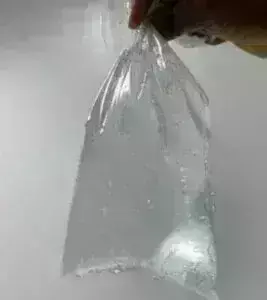- Home
- /
- Trending-News
- /
- Physician calls for...

A General Physician, Dr Tunji Akintade, has called for a ban on sale of ‘nylon water’ to reduce the transmission of cholera disease in the country.
Akintade, former Chairman of the Association of Nigerian Private Medical Practitioners (ANPMP), said this in an interview with the newsmen on Thursday in Lagos.
Supreme News reports that due to the biting economic situation and the increased price of sachet water, some street traders emerged with the sale of nylon water as a cost-cutting measure for the public.
Sachet water, popularly known as “pure water”, is being sold at N50 in most parts of Lagos, while nylon water is sold for N10 or N20, depending on the location.
Akintade appealed to the Federal Government to urgently restrict the sale of nylon water to reduce the transmission and deaths arising from cholera outbreak nationwide.
The physician warned the public against consuming nylon water, stressing that the source and purification of such water was in doubt, especially as they are unregistered.
He disclosed that past tests had confirmed the contamination of some boreholes and well water by pathogens, emphasising that nylon water was unsafe for consumption.
“People can get cholera by drinking unsafe water or eating food contaminated with cholera bacteria.
“It’s so sad that people neglect their health because of financial concerns and some unscrupulous traders are cashing on it,” he said.
Akintade appealed to the government to intensify surveillance across communities and attach punitive measures for traders of nylon water toward safeguarding the health of citizens.
The physician also called for effective monitoring and regulations of pure water and bottled water factories to ensure they adhere to safety standards in their production.
He lamented the perennial cholera outbreak in the country, noting that cholera had ceased to be public health concerns in industrialised countries that deployed modern sewage and water treatment.
Akintade urged the Federal and state governments to move beyond alerting the public about the unsafe conditions of the water source to expediting actions to improve access to clean and safe water through functional water boards.
The physician stressed that doing that would mitigate the health risk associated with consumption of unsafe water, especially as rain and flooding are causing waterborne diseases in communities.
He added that ingesting contaminated food could also cause cholera, advising the public to ensure vegetables and fruits are properly washed before eating and food produced in an hygienic environment.
Akintade stressed the equipping of environmental inspection officers with improved training and equipment required to effectively monitor and clean the environment.
“The issue of revenue generation through them should be downplayed for them to achieve their core mandates, focusing on ways to generate money has trivialised their role,” he said.
Cholera is an acute diarrhoeal infection caused by eating or drinking food or water that is contaminated with the bacterium Vibrio cholerae.
The Nigeria Centre for Disease Control (NCDC) on June 24 disclosed that 53 deaths and 1,528 suspected cholera cases were recorded across 31 states, since the beginning of 2024.
Lagos state is the epicentre of the cholera outbreak with 29 fatalities, 579 suspected cases and 43 laboratory confirmed cases across multiple Local Government Areas in the state.



